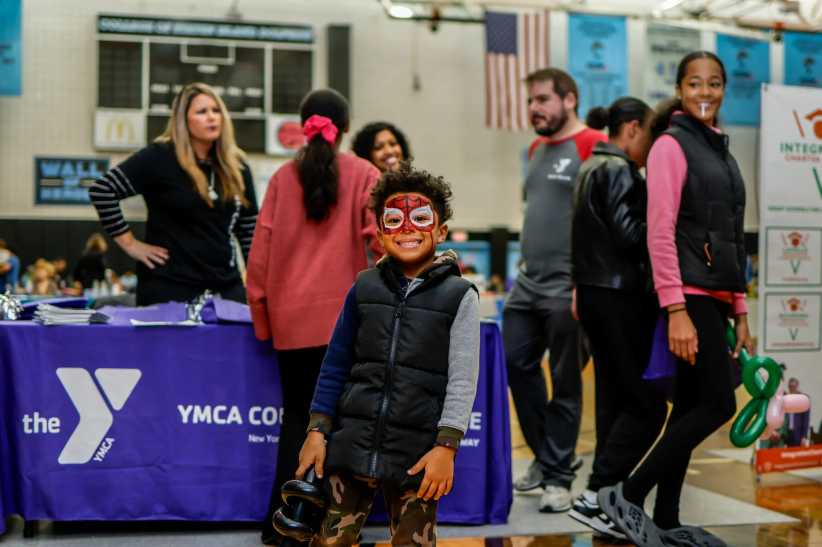 It’s early in the school year. A relatively affluent student at a prestigious middle school is between classes and realizes that she doesn’t know what or where her next class happens to be. She’s left her school schedule at home, so what does she do? She pulls out her cell phone and calls her mom.
It’s early in the school year. A relatively affluent student at a prestigious middle school is between classes and realizes that she doesn’t know what or where her next class happens to be. She’s left her school schedule at home, so what does she do? She pulls out her cell phone and calls her mom.
This paradox—academically successful kids who are handicapped in real life skills—is at the heart of psychologist Madeline Levine’s New York Times bestselling book, Teach Your Children Well: Parenting for Authentic Success, Why Values and Coping Skills Matter More than Grades, Trophies, or “Fat Envelopes.”
In 2006, when Dr. Levine’s book, The Price of Privilege, was released, it caused a stir among affluent urban and suburban parents. Focused in particular on affluent teens like the ones Levine treats in her adolescent psychology practice, The Price of Privilege provided an eye-opening analysis of the detrimental effects of the modern pressures our children face in the race to succeed academically. After 30 years of practice—and armed with the added experience of having worked as a teacher in the South Bronx—Levine became increasingly alarmed at the number of kids whom one would assume, given their advantages, were “perfectly fine,” but were actually far from it. These relatively well-off kids were engaging in cheating, cutting, and drug abuse, even displaying severe symptoms of anxiety and depression. For obvious reasons, Privilege touched a chord with parents across the country.
In Teach Your Children Well, Levine takes readers beyond the alarm bells set off in Privilege and provides practical advice for parents who want to help their children reach their highest potential. In doing so, she promotes more subjective measures of success, such as core values, resiliency, and coping skills, instead of test scores and Ivy League acceptances. What readers gain is a highly methodical, detailed analysis of the developmental needs and challenges of each stage in a child’s development, as well as tools to help foster “authentic success.”
So what does Levine mean by “authentic success?”
“Authentic success is internally driven,” she says. “It’s a judgment you make in your own life and is not primarily based on what other people tell you that you should be doing, what types of grades you’re getting, what type of school you go to, or the salary you make.”
This is a powerful and important message at a time when report cards and acceptances by elite groups of all kinds are at the root of external affirmation for so many kids—especially in a city as competitive as New York. Though these measures of success are certainly legitimate, in Levine’s estimation, they’re too narrow and limiting.
In her new book, Levine argues that all too often parents’ methods to promote their children’s academic success—from securing admissions to the best schools to hiring tutors and arranging enrichment activities—may be hindering, not helping, their kids. In fact, she questions whether parental motivations are as much about their children’s needs and talents as they are about the parents’ own egos and desires. Further, she goes on to challenge parents’ often well-intentioned level of involvement in every detail of their offspring’s lives.
One of the best things parents can do for their kids, Levine suggests, is to try to model an independent life for their child, in which their happiness is not dependent on their kids’ successes or failures. Another key to effective parenting is to learn to tolerate the pain you feel when your kids make mistakes: “It’s never easy to see your kids struggle with something, but constant intervention is just handicapping kids in a really significant way.”
According to Levine, bringing your daughter her school schedule or paying for the neighbor’s window that your son accidentally broke with a baseball deprives kids of “successful failures.”
“Successful failures are mandatory, if you’re going to hit the ground running and bang into an ethical or other challenge and then pick yourself up again,” Levine says with regard to cultivating perseverant children. But because of the preoccupation with grades, kids are not developing coping skills and, as a result, often have a lot of trouble in the real world.
Levine actually encourages parents to stay away from the topic of grades when it comes to communicating with their kids, affirm effort over performance, and ask children not what mark they received but whether or not they learned something new. “The best way to make sure your kid is an intrinsic instead of extrinsic learner is to make sure that they own the process of learning,” she says. “And the way you do that is to not make it about performance, but about the process itself.”
Essentially, Levine wants parents to see their children clearly for their unique strengths and skills and to prioritize values and coping skills necessary for a bright future. “Nobody has a clue what the world our kids are going to inherit is going to look like, in terms of jobs or necessary skills. If we don’t know what our kids are going to need—being creative, being able to work with other people, having good coping skills, knowing how to recover from mistakes—those are the kinds of things that my training tells me are most useful in an unknown or uncertain scenario,” Levine says.
As she sees it, what our kids need most is our support and encouragement in areas of life such as social skills, effective communication, cultural awareness, and the time and means to figure out who they are.
“My own experience taught me that life will throw you curveballs anyway,” Levine advises, “so it’s a better use of time to cultivate kids’ coping skills than that last one-tenth of a percentage on their GPA.”
To read Dr. Levine’s advice for how to teach kids to find solutions to everyday problems, click here.













